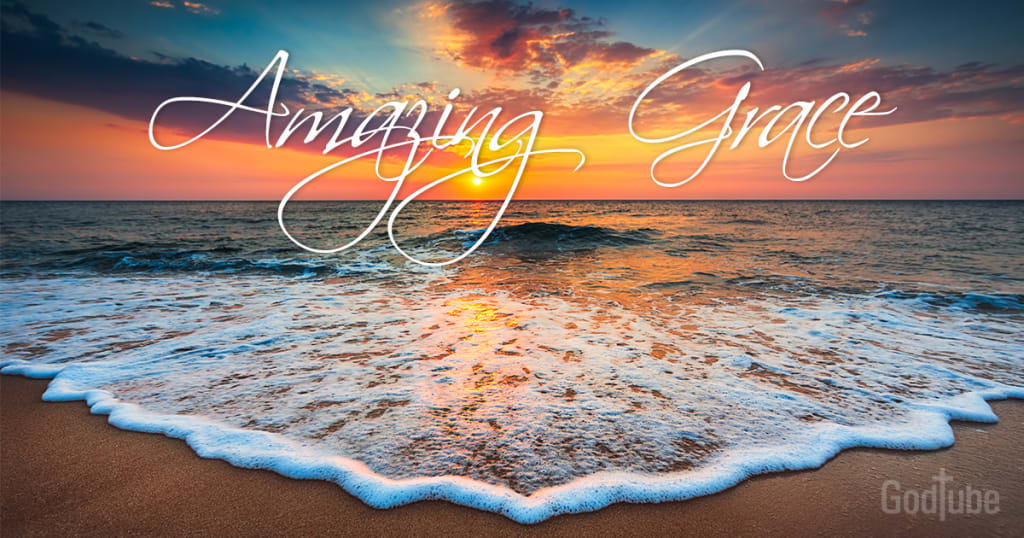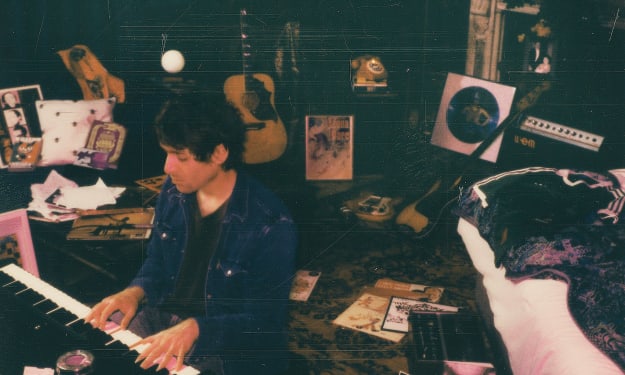Amazing Grace: the history behind the popular song
This song is sung at presidential inaugurations and often on television shows and at funerals. The origin of this tune is quite amazing.

On Wednesday, January 20, 2021 Country singer Garth Brooks sang Amazing Grace during the Inauguration of Joe Biden. For many, this was not unexpected for the 46th President of the United States. Amazing Grace is a popular song that is heard often at funerals, in real-time as well as reel-time. It seems to be the song of choice in times of crisis such as in the aftermath of the terrorist attack during 911. There is also a rich history behind the origin of this hymn/folk song. The words to "Amazing Grace" were penned in 1772 by English poet and Anglican clergyman John Newton and was officially published in 1779. Newton wrote Amazing Grace from his own personal experience.
Newton became involved in the Atlantic slave trade and in 1748, a violent storm off the coast of County Donegal, Ireland began battering his vessel to the point that he became afraid. John Newton did not grow up as a religious man but in his distress, he says he cried out to God for mercy. When he survived the storm this moment changed his life but he continued in the trading of slaves and other ungodly behaviors until 1754 or 1755. There have been stories over the decades that indicated that Newton immediately stopped trading slaves and turned his life around because of his epiphany during the storm but the facts do not bear this out.
John Newton eventually did walk away from seafaring and began studying Christian theology and later became an abolitionist. In 1764 he was ordained in the Church of England. The notoriety of his song crossed the seas "Amazing Grace" became a popular song in the United States. Methodist and Baptist preachers utilized it as a method of evangelizing and it can be found in hymnals from those denominations. Initially, "Amazing Grace" was associated with more than 20 different melodies. In 1835, however, American composer William Walker set the lyrics to the tune known as "New Britain" which is the popular version that is most often used today.
Amazing Grace is one of the most recognizable tunes in the English-speaking regions of the world, and often it is played on bagpipes which is a beautiful sound to hear. When John Newton finally gained his spiritual focus he said his song was about the message of forgiveness and redemption being possible regardless of sins committed. He thought about the mercy extended him when he was on His vessel and said that the soul can be delivered from despair through the mercy of God, Author Gilbert Chase once wrote that "Amazing Grace" is "without a doubt the most famous of all the folk hymns".
I recall my grandmother saying that people must not know any other song because whenever presidents or popular people died, this would be the go-to song during their eulogies. As time went on I realized my grandmother was correct. Newton biographer, Jonathan Aitken, puts this in perspective as he estimates that "Amazing Grace" is performed about 10 million times annually. It has also appeared on over 11,000 albums according to David Sheward, the author of The real story behind Amazing Grace. Sheward says the song was referenced in Harriet Beecher Stowe’s anti-slavery novel Uncle Tom’s Cabin and had an increase in popularity during the Civil War and the Vietnam War.
The recording of the song by Judy Collins’ spent 67 weeks on the music chart and peaked at number 5. Elvis, Johnny Cash, Aretha Franklin, Ray Charles, and Willie Nelson are only a few of the many artists to record the song. President Obama began singing Amazing Grace during the memorial service for Reverend Clementa Pinckney, who was a victim of Dillon Roof during the church shooting in Charleston, South Carolina that left 9 dead.
The lyrics to the popular song are as follows:
Amazing grace, how sweet the sound
That saved a wretch like me
I once was lost, but now I am found
Was blind, but now I see
'Twas grace that taught my heart to fear
And grace my fears relieved
How precious did that grace appear
The hour I first believed
Through many dangers, toils and snares
We have already come
'Twas grace has brought us safe thus far
And grace will lead us home
When we've been there ten thousand years
Bright, shining as the sun
We've no less days to sing God's praise
Than when we've first begun.
About the Creator
Cheryl E Preston
Cheryl is a widow who enjoys writing about current events, soap spoilers and baby boomer nostalgia. Tips are greatly appreciated.






Comments
There are no comments for this story
Be the first to respond and start the conversation.